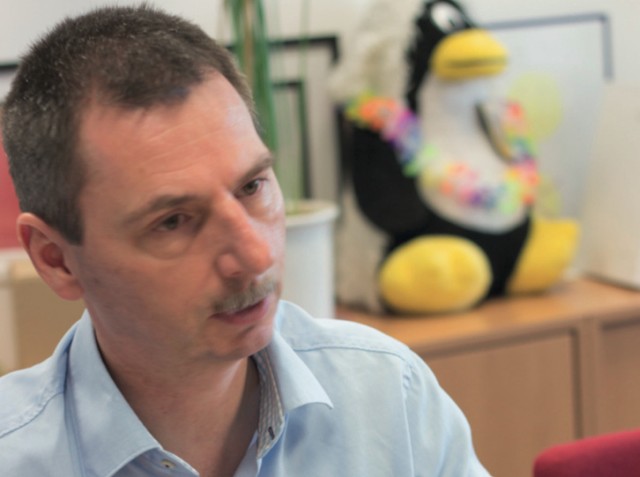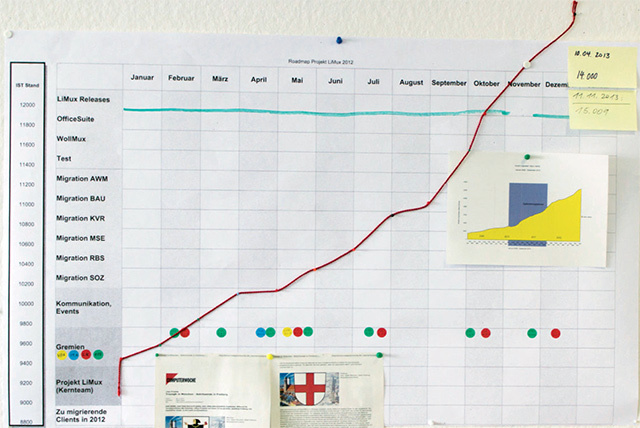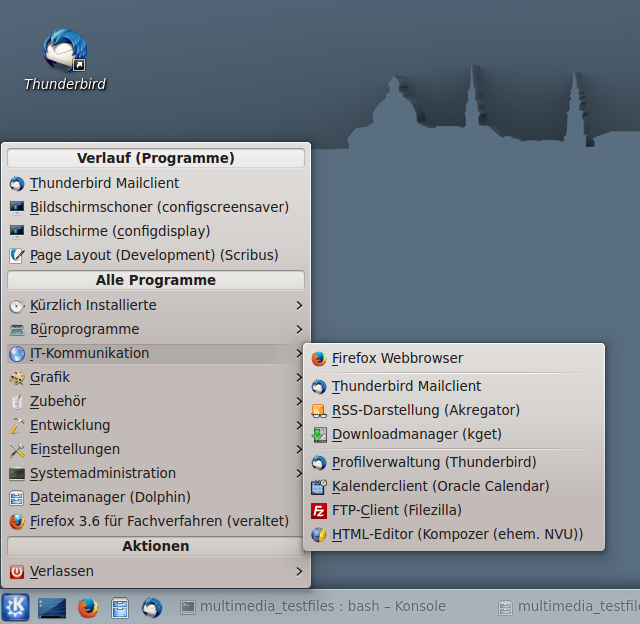How Munich translated 15,000 Windows PCs to Linux
 In November 2013, the Munich City Council completed a lengthy migration procedure for free software. The decision to abandon proprietary and very expensive Windows and Microsoft Office programs was made in 2003. After preparing, planning and retraining personnel, the city began to systematically transfer offices from Windows NT to its own distribution kit, LiMux. The procedure took 10 years.
In November 2013, the Munich City Council completed a lengthy migration procedure for free software. The decision to abandon proprietary and very expensive Windows and Microsoft Office programs was made in 2003. After preparing, planning and retraining personnel, the city began to systematically transfer offices from Windows NT to its own distribution kit, LiMux. The procedure took 10 years.Munich is one of the first cities in Europe, which completely switched to free software and thereby saved millions of euros from the city budget. As of November 2013, the cumulative budget savings exceeded 10 million euros, and this figure will continue to grow, because free software does not require annual royalties and a paid OS upgrade.
LiMux brings with you a completely ready to use desktop environment based on open source software, including the free office software OpenOffice, which work with the open format Open Document Format (ODF). This format has become the standard for office work in the city.
Recently, Linux Voice magazine published an article ( pdf ), which revealed some details of the transition to open source Munich. Peter Hofmann, LiMux project manager, spoke about them.
')

Peter Hofmann in the office of the organization LiMux, in the background a penguin, everything is as it should be
Munich is considered the technological leader of Europe in terms of a combination of 42 criteria for IT innovation, business activity, science and R & D. No wonder that in 2001 one of the members of the Munich City Council asked the question: is there any alternative to Microsoft software?
To answer this question, a tender was announced to conduct a comparative study of the cost of supporting five different platforms. One of them is exclusively Microsoft software, the second is Windows and OpenOffice, the third is Linux and OpenOffice, etc.
As a result, there are only two options left: either upgrade systems from Windows NT and 2000 to XP, or install Linux with an open source software package. It also turned out that in a five-year term, it would be cheaper to stay with Windows. But activists from the LiMux project managed to convince the authorities that Linux has an advantage in terms of information security. In addition, the local economy will win: the money will remain in Munich, and not go overseas. Another argument is the stimulation of the local IT market, because the order was carried out by local companies. The initiative was supported by politicians from the influential SPD party.

Migration schedule from Windows to Linux in 2012: from 9,000 computers at the beginning of the year to 14,000 at the end of the year
The city council decided to switch to Linux in 2003. Shortly before the vote, Microsoft found out about this - and Steve Ballmer immediately flew to the mayor of Munich for talks. However, this had the opposite effect. The city administration decided: who will they be if one important person from a large corporation forces them to change the decision?
As a result, voting took place in favor of Linux, which was a historic event for Linux and the entire free software movement.
In 2004, preparatory work began, including a tender for the development of a desktop version of the system. Ten companies participated in the tender, and the winner was a consortium of two small firms, Gonicus and Softcon, which offered client software based on Debian.
At the time, 13 people worked on the LiMux project, not counting the consultants from Gonicus. By 2006, client software development was over - and Linux began to be installed on the first computers. In 2008, it became clear that in order to support new hardware, it was better to switch to another distribution, so Debian was changed to Kubuntu.

The reason for the transition to Kubuntu was also in the preservation of the desktop environment (KDE), which is more familiar to users. The fact is that many users, after switching to Linux, made claims precisely because of the interface change: that this button used to be green, and now it is not green, I cannot work that way. However, there were other users who were not indignant, but, on the contrary, were pleasantly surprised that the mouse works under Linux, Hofmann recalls.
Now LiMux is updated after Kubuntu, albeit with a delay. For example, only this year there will be a new version of LiMux based on Kubuntu 12.04 LTS.
Although such a task was not set in the first place, the LiMux project even allowed to save money from the city budget. Over the years, the total savings amounted to 10 million euros, according to estimates of LiMux.
Unfortunately, other cities for some reason do not follow the example of Munich. For example, a similar project Wienux started was in Vienna (Austria), but the initiative was blocked in 2008. Peter Hofmann believes that the reason for the lack of support for the project from politicians is that the initiative of several techies is not enough.
Source: https://habr.com/ru/post/222511/
All Articles